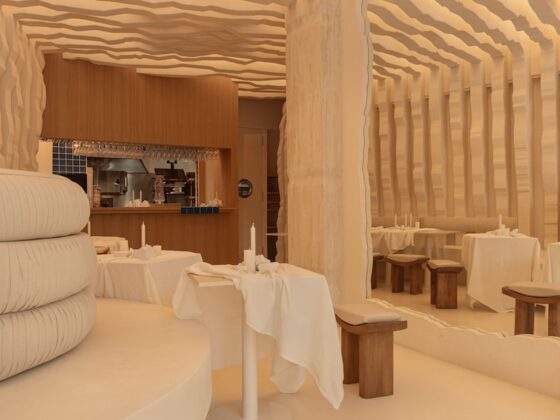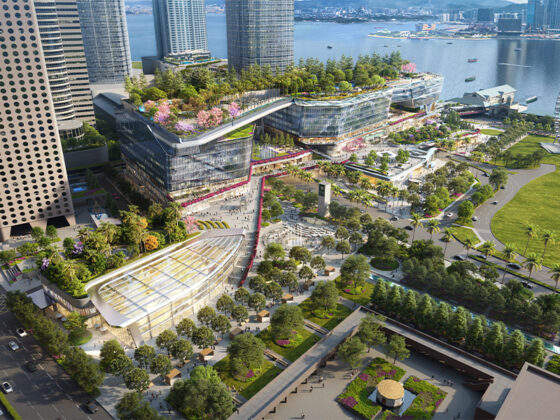Every year, thousands of tonnes of food are discarded worldwide, with the hospitality industry playing a substantial role in this troubling statistic. Kitchens often overproduce to meet demand, buffets sit mostly untouched, and guest plates frequently leave behind uneaten portions. These practices drain resources through wasted ingredients, labour, and disposal costs while also conflicting with the rising expectations of environmentally aware travellers.
Fortunately, technologies like artificial intelligence (AI) and automation are available to combat this issue. How do these solutions work, what are the potential benefits, and why should hotels consider integrating them into their operations to address food waste effectively?
Takeaways
Waste Drains Profits: Food, labour, and disposal losses add up—reducing waste protects margins.
AI Enhances Precision: Tracking and analytics align food prep with demand, cutting waste.
Automation Saves Time: Inventory tools, biodigesters, and APIs streamline operations efficiently.
Surplus Finds Purpose: Digital platforms redirect extra food, benefiting communities and hotels.
Green Appeals to Guests: Tech boosts eco-credentials, attracting sustainability-focused travellers.
Understanding food waste in hotels
Globally, hotels account for roughly one-third of all food waste in the hospitality sector. Daily routines in hotel kitchens produce mountains of scraps, from vegetable trimmings to spoiled goods. Many buffet items often go uneaten, and guest plates return with leftovers. This problem escalates during peak seasons, such as holidays or large events like conferences when hotels prepare vast quantities of food to accommodate unpredictable guest numbers.
The environmental impacts are significant. When food waste decomposes in landfills, it releases methane, a greenhouse gas more potent than carbon dioxide. Beyond that, the resources invested in growing, transporting, and preparing this food, including water, energy, and labour, are essentially wasted.
The economic impact is equally significant. Experts estimate that food waste in hospitality costs over $100 billion annually, encompassing not just disposal expenses but also the lost value of ingredients and the staff time spent preparing unused meals. For hotels, cutting down on waste is not just good for the environment—it also helps to protect profits as costs rise. Guests are also part of this equation.
Many travellers now actively seek accommodations with healthy sustainability practices, pressuring hotels to adopt greener approaches. Technologies like AI and automation are stepping up to meet these demands, offering solutions that enhance efficiency while aligning with broader ecological goals.


Photo: Sustainable Hotel News
How technology tackles food waste
AI is transforming hotel food waste management by providing precise, data-driven insights. Intelligent systems equipped with scales, cameras, and machine-learning algorithms are deployed in kitchens to monitor discarded items. Everything from vegetable peels to uneaten meals. These tools generate detailed reports that break down what’s being wasted, how much, and why it’s happening.
Chefs and managers can use this information to make informed changes. They can improve recipes, adjust portion sizes, or rethink ordering patterns to reduce excess. For instance, if a hotel discovers that a dish consistently leaves leftovers on guests’ plates, AI might suggest reducing its portion size or replacing it with a more popular option. Large hotel chains have already implemented this approach to standardise waste reduction efforts across multiple properties, turning raw data into workable strategies.
Predictive analytics takes this further by using historical data—such as booking numbers, past meal orders, and seasonal trends—to forecast dining demand. By estimating how many guests will eat and what they’re likely to order, hotels can prepare enough food, avoiding the overproduction that plagues buffet lines and event catering.
A seaside hotel, for example, might scale back on seafood platters during a quiet week, while a city property could boost dessert offerings for a conference crowd. This precision is especially valuable for hotels in remote areas, where long supply chains make managing perishable stock a logistical challenge. The result is less food heading to the bin, a leaner inventory, and reduced operational costs.
Machine learning can optimise menus by analysing guest preferences, identifying unfinished dishes, and suggesting better alternatives. This approach enhances kitchen efficiency, reducing unsold food while staying within budget. Additionally, automation tracks stock levels and expiration dates in real-time, with sensors alerting staff to items nearing their use-by dates. These systems can integrate with procurement systems, recommending precise order quantities to avoid overstocking.
API’s role
A crucial aspect of this technological shift is integrating waste data into existing hotel systems via an API (Application Programming Interface). This allows seamless connection with enterprise analytics tools and point-of-sale (POS) platforms already in use, eliminating the need for manual data entry into spreadsheets. For hotels, this means less time spent on tedious tasks and more focus on leveraging insights. Providing a real-time view of waste patterns for business operations, enabling quicker, smarter decisions. Whether in a boutique hotel or a sprawling resort, this API-driven approach ensures waste management aligns with the hotel’s broader tech stack, enhancing efficiency across the board.
Even with the best prevention efforts, some food waste is inevitable—but technology offers ways to handle it responsibly. Biodigesters, for example, are automated machines that process organic scraps into grey water, which can be safely drained or repurposed, such as for irrigating hotel gardens. These devices are particularly useful for high-volume operations like buffets or large catering events, where leftovers can pile up quickly.
A hotel hosting a weekend wedding, for instance, could use a biodigester to manage uneaten food from the reception, significantly reducing its landfill contributions. By processing waste on-site, these systems lessen the environmental burden and cut disposal costs, offering a practical solution for unavoidable scraps.
Meanwhile, surplus food doesn’t need to end up as waste. Digital redistribution solutions connect hotels with local communities to share excess meals, such as day-old bakery items or untouched catering from cancelled events. Through these systems, a hotel can list surplus food for discounted sale or a charitable donation, ensuring it reaches those in need rather than the bin. Imagine a conference cancellation leaving trays of sandwiches unused—a hotel could use this tech to redirect them to a nearby food bank, reducing waste while fostering goodwill. These platforms help the operation recover some costs and strengthen their community ties with minimal effort.


The benefits of adopting AI and automation in waste management are compelling. Cost savings emerge from buying less food, lowering disposal fees, and optimising labour—a hotel reducing waste by just 20% could save thousands annually, depending on its size. Beyond finances, these tools enhance sustainability credentials, a major draw for guests prioritising eco-friendly stays. The data backs this up: travellers increasingly choose hotels that demonstrate environmental responsibility, making waste reduction a competitive edge as much as an ethical choice.
Industry organisations are also stepping in to support this shift. The PLEDGE on Food Waste is one such initiative that offers a certification and benchmarking system to guide hotels toward sustainable practices. Built on seven pillars and ninety-five criteria, it aligns with the United Nations Sustainable Development Goals and has helped participating hotels cut waste by up to 40%.
Looking ahead
Food waste is a multilayered problem, but technology offers a range of actionable solutions. AI provides the precision to track and predict waste while automation streamlines inventory and processes unavoidable scraps. API integration ties these tools into existing systems, making waste management a seamless part of operations.
Digital platforms redirect surplus food, reducing landfill reliance and benefiting local communities. These innovations lower costs, boost sustainability and align with guest expectations for greener practices. Embracing these technologies could mark a significant step toward a more efficient, environmentally conscious, and profitable future.
Sources from which this article was influenced:
https://www.businesswaste.co.uk/sectors/hotel-waste-management/hotel-waste-statistics/
https://www.rts.com/resources/guides/food-waste-america/
https://www.sciencedirect.com/science/article/pii/S2666957923000058
https://greenly.earth/en-us/blog/industries/global-food-waste-in-2022







